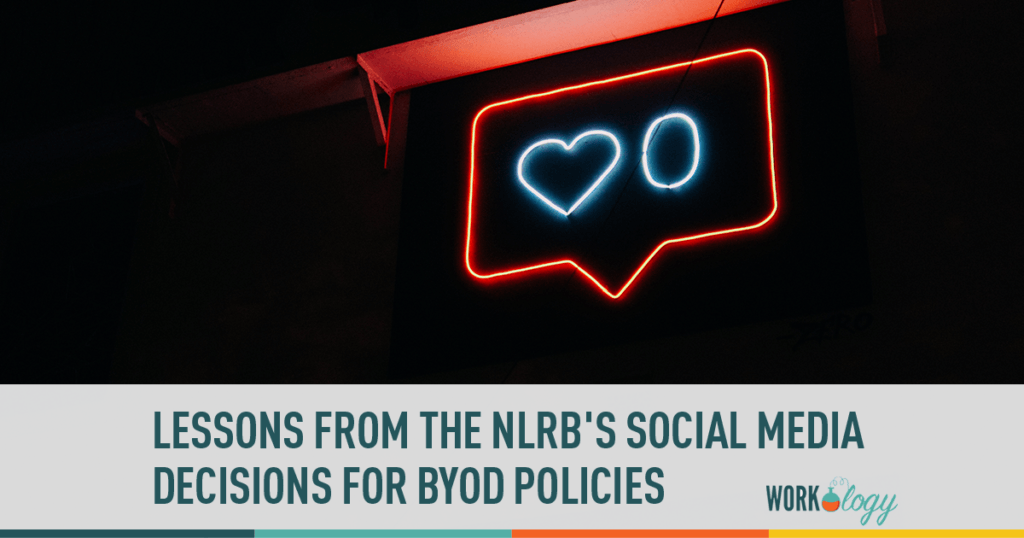Anyone that has been paying attention to the National Labor Relations Board’s social media decisions recently knows that they have been rather . . . picky. For those of you who (quite reasonably) do not follow the NLRB’s every move, I’ll give you a quick summary.
National Labor Relations Act
The NLRB enforces the National Labor Relations Act. While the NLRB is typically associated with unions, it does have authority over non-union workplaces as well. Section 7 of the NLRA protects employees who discuss wages, working conditions and other “terms of employment” and who take “concerted action” in an effort to improve working conditions. In other words, employers cannot forbid employee speech and activity involving working conditions and salaries. While employees are not permitted to simply gripe about work, the NLRB doesn’t exactly draw a clear line between permissible and impermissible behavior.
Social Media Policies and the NLRB
It seems like the NLRB strikes down an employer social media policy every week. The NLRB struck down one social media policy where the employer forbid employees from sharing “confidential” information via social media. Sounds reasonable, right? The NLRB determined that the policy did not appropriately define “confidential,” and as a result, employees’ permissible speech may have been chilled.
In another case, the NLRB found that a social media policy violated the NLRA because it required employees to be “courteous, polite and friendly” and not to use “language which injures the image or reputation” of the employer. This, of course, seems reasonable. The NLRB was, again, afraid that the policy might prevent employees from engaging in protected speech and concerted activity.
BYOD Policies
Like social media policies, BYOD policies are quickly becoming must-haves for most companies. If you are allowing employees to access your company email and network, you should have a written BYOD policy.
At present, the NRLB has not turned its attention to BYOD policies, but I think its only a matter of time. Social media is a much larger target for the NLRB, for the most part because employees are getting fired over social media policy violations. To date, I’m not aware of any cases involving violations of BYOD policies, but that is bound to change.
Applying Social Media Lessons to BYOD
So now comes the real question, what do you need to do with your BYOD policy to make sure it passes muster in case the NLRB reviews your policy.
First, make sure to specifically define any terms in your policy that employees could interpret to forbid speech protected by the NLRA. You may want to forbid employees from transferring confidential information from your network to a device that doesn’t have proper security settings. Or you may want your BYOD policy to address employee communications. While your policy may state that employees should only discuss business matters through email or your company’s preferred messaging system. While these seem like reasonable terms, employees may interpret them to prohibit permissible activity. Make sure you define “confidential information” or “business matters” clearly and note that the prohibition does not include information about salary, work conditions or concerted activity.
Second, use examples of conduct that is permitted or not permitted. Quite frankly, the NLRB loves examples in social media policies, so they would likely welcome examples in BYOD policies as well. Examples should cover common scenarios that you expect will arise. The examples you use should cover situations that are allowed under the policy and scenarios that would violate the policy.
Finally, your BYOD policy should only be as broad as required to protect your company. If your employees only have access to email, but not to other information on the company network, your BYOD policy only needs to address email usage. Prohibiting activity that the employees could not do anyway does nothing to actually protect your company, and could violate the NLRA or open your policy to an employee challenge.
While the NLRB hasn’t start targeting BYOD policies yet, I believe it’s only a matter of time, and it won’t hurt to be prepared.










2 Comments
Thanks for this update Casey!
Aliah, thanks! I hope you found it helpful!
Comments are closed.